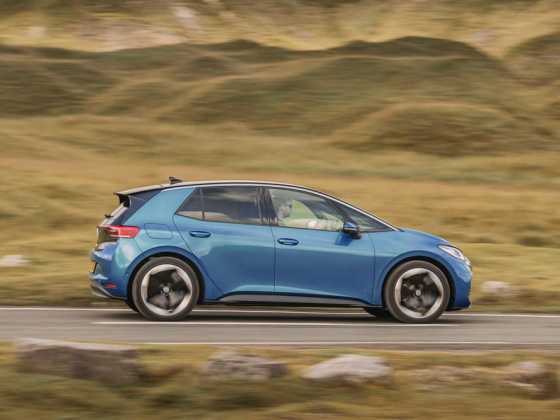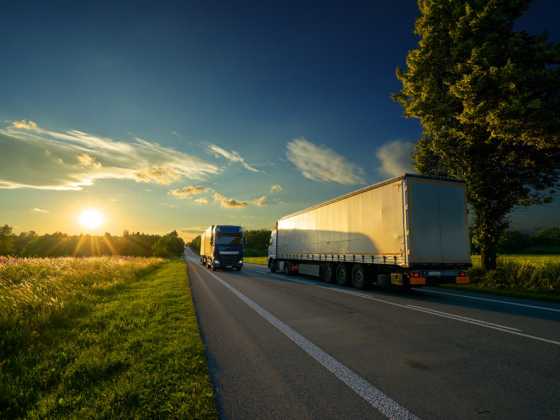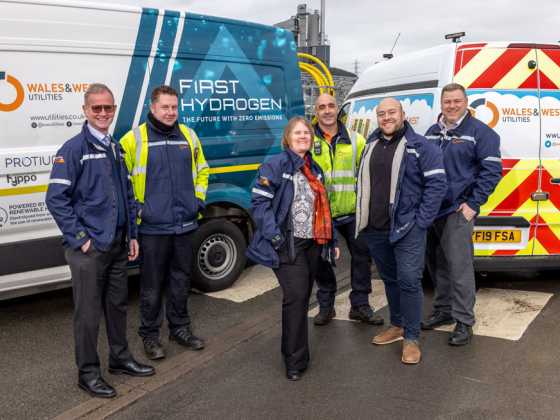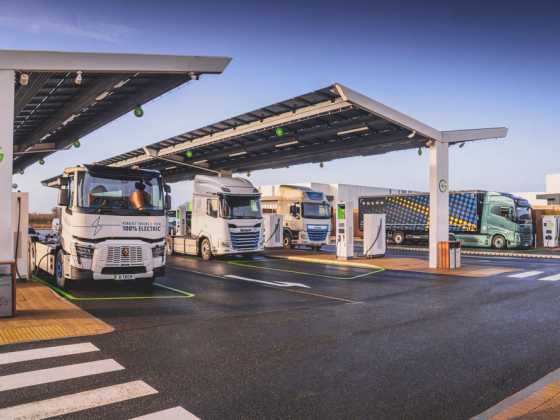Carbon reporting: a box ticking exercise?
Carbon reporting has the potential to save an organisation money and reduce its environmental impact. But for haulage it’s complicated and important questions need to be resolved first
 Written by Jack Semple, director of policy, Road Haulage Association
Written by Jack Semple, director of policy, Road Haulage Association
Think of the global warming debate as akin to world music, full of competing themes and variations. The much-heralded Copenhagen Summit provided a noisy and discordant coda.
In the UK, the debate continues to evolve without missing a beat – within government, environmental departments of large companies and the projects and drawings of primary schools.
No businessman can be unaware of all this. However, we are as yet at an early stage within the goods transport sector – globally, within the EU and in UK. The issues to be addressed pose particular and complex challenges, as regulators are finding.
Within road haulage and logistics, the very largest companies are measuring and reporting carbon but that has nothing to do with the sector in which they operate. Rather, it is because of the demands upon them in terms of corporate social responsibility and the regulatory framework on large consumers of energy other than road fuels. Many SMEs involved in cold storage – and they often run trucks as well – are also now used to reporting their electricity use under regulation because of the high levels of electricity used in temperature-controlled storage.
A box ticking exercise
Increasingly, SMEs in the transport sector are becoming used to providing carbon reports to their multi-national and local government customers, as required under the terms of their contracts rather than regulation. There remains a strong sense among these companies that these reports are still regarded by customers as a box-ticking exercise – but that the burden and significance will almost inevitably increase.
For many transport SMEs and the great majority of very small hauliers and firms running trucks to carry their own goods, the carbon agenda has as yet had little direct impact or meaning. The general attitude appears to be that it should remain that way, too – but that is likely to prove little more than wishful thinking.
Learning from others
Regulators across Europe are trying to develop packages to impose carbon reporting on truck operations. France provides a salutary warning that the issue of carbon reporting is not as easy as some may think. The French transport ministry had declared that all consignments in French domestic transport would be allocated a carbon value and the shipper subsequently taxed on that value.
The RHA understood that the system was definitely going ahead on 1 January 2010 – right up to the moment in mid-November 2009 when it was revealed, at a conference of the French hauliers’ association FNTR, that it wasn’t. It seems that not only did shippers object strongly but the French treasury department had come to the conclusion that collecting the taxes was impracticable. The concept is dead and buried for the time being, at least; and the French are making do with a new environmental tax on all road fuel, similar to fuel duty.
The situation in the UK
In the UK, goods transport is being caught up in the Climate Change Act, which envisages regulations for each sector on carbon reporting. Ministers are required to bring forward carbon reporting regulations by spring 2012 or to explain why they haven’t done so.
It is as yet unclear the extent to which SMEs in the transport sector will be directly regulated and much greater clarity will emerge over the next 12 months as a result of discussions with the DfT and Defra, to which the RHA is party along with other trade associations and a number of companies, including two RHA-nominated transport firms.
The work is going on despite the fact that transport is excluded from the UK’s climate change commitment (CRC). Speculation naturally follows that transport will be included in the CRC in due course.
A key aim of the Climate Change Act is to put the carbon issue near the top of the agenda of company boards. In the mantra: if you are not measuring carbon, you are not managing carbon.
Measuring carbon and fuel
It is undoubtedly true that few transport companies measure carbon – although, at a basic level, it is easy to do by multiplying the litreage of diesel used by a standard factor, normally cited as 2.63, to give the weight in kilograms. As RHA members are well aware, low carbon normally means low cost and improved profitability.
So, if they are not measuring carbon, do truck operators measure and manage their fuel use? Here, regulators are sceptical and see, at the very least, significant room for improvement in the extent to which diesel use is measured and for reductions in UK diesel use.
The truth appears to be that some firms do well, others less so and no-one can say with confidence where the balance lies. Diesel accounts for between 30 and 40 per cent of typical operating costs, depending on the fluctuating commodity price; and so privately-owned firms where haulage is the main activity have a huge incentive to minimise costs through optimising the way the truck is driven and the way it is routed and scheduled to reduce mileage.
Reducing mileage not only cuts the fuel bill, all things being equal; it also slashes vehicle and driver costs, the two other major cost areas. It seems reasonable to suggest, therefore, that firms are managing their diesel use to a considerable degree – albeit that firms can always do better.
In own account truck operations, where the vehicle is carrying only the company’s own goods, transport is a relatively small part of the overall business and therefore the pressure on costs is likely to be less intense. The potential for savings is the same, however – big savings are there to be made – or missed – across the goods transport sector.
Carbon reporting is intended to prompt firms to realise this potential. But there are important questions to be resolved in haulage: how much more of an administrative burden – commercial and regulatory – should firms have to undertake? What information will firms have to provide – and which firms? And for what purpose?
A complex issue
In haulage, carbon reporting is a complex issue. Unlike buying electricity for a production line, or a cold store, the decision-path for carbon use in haulage is a grey area. Transport companies respond to customer demand; and their customers often respond to the demand of the firm receiving the goods – supermarkets are the most commonly quoted examples.
So while transport companies have control of the driver and to some extent the routeing of the vehicle – and a strong incentive to optimise both – they are at the command of others in terms of whether the capacity of the truck is fully used and when it moves.
The issue is complex enough with full loads; the more so with many different customers’ goods on board, as with, for example, parcels and pallet network operators. Who owns the carbon? How do you calculate the carbon share of the load?
Carbon use varies according to what else is on the truck and – because of the strong influence of congestion on fuel economy – the time the truck moves and whether there are roads works or an accident to impede the schedule. (It would be useful if the government reported on congestion trends on major roads – but is unlikely to happen.)
Who's responsibility
If the purpose is to focus attention on the issue, should it be on the haulier, with strong incentive to optimise and little control on the major influencers, or on the shipper, with much less incentive currently to save costs (because they are a much lower proportion of the overall business) and greater influence on the major influencers. The current trend is towards the haulier; I would suggest that is mis-placed.
Take the case of a major supermarket using 100 significant-sized transport companies. Are they all to fill in forms relating to the work they are doing, effectively micro-reporting small variations around work done with much the same equipment and little scope for step-change improvement? Or by the supermarket, which already has almost all the information it needs – the load by pallets or roll cages etc, the distance it will travel, the timing demanded.
Unless hauliers are to report on the mpg for each journey and allocate carbon on the mix for each split, it surely makes more sense for the purchaser of transport to use standard values, which can be fine tuned with real-life mpg comparisons to take account of congestion. The administrative burden is greatly reduced, the issue of verification is greatly simplified and the increase in reporting focus is placed in the area of strong influence but relatively little current incentive for improvement.
In addition, there is likely to be strong opposition from hauliers towards disclosing details of fuel consumption to customers – the more so if the customer is a large transport company and potential competitor, for which the haulier is working under sub-contract.
What does this say about the current trends in carbon reporting? At the contractual level, customers seem still to be box-ticking and could do more to take on responsibility themselves, rather than demand from their transport suppliers.
There is a tendency among regulators and their advisers to inflate the weaknesses of a sector’s current practice – such as optimising carbon efficiency – and to underplay the extent to which improvements have been made and efficiencies achieved; a tendency too, perhaps, inflate what can be achieved by regulation – as with the Climate Change Act – to achieve improvements that might be achieved as effectively and at lower cost by other means. I expect carbon reporting to become a regulatory requirement but would urge a light touch, especially upon SME and micro transport companies.
A place for incentives
It has been suggested from parts of the supply chain that government should incentivise those who report carbon reductions. I doubt that this would be attractive to the Treasury; even if it were, it is undesirable. Current fuel duty levels amount to a tax on transport operation of around 25 per cent – so there is already a strong government incentive to reduce CO2 by using less diesel. Rhetorically, how much more does a truck operator require?
There is a place for incentives in regard to the acquisition of vehicles and equipment, especially in regard to transport SMEs. Electric and hybrid trucks, and possible gas-powered trucks, are said to hold out carbon and environmental benefits. There is a role for government is assisting in the proving of such vehicles for use in the UK and in making the relevant information available to the industry as a whole, rather than to a select few mega-operators. The RHA would be keen to assist in that process.






